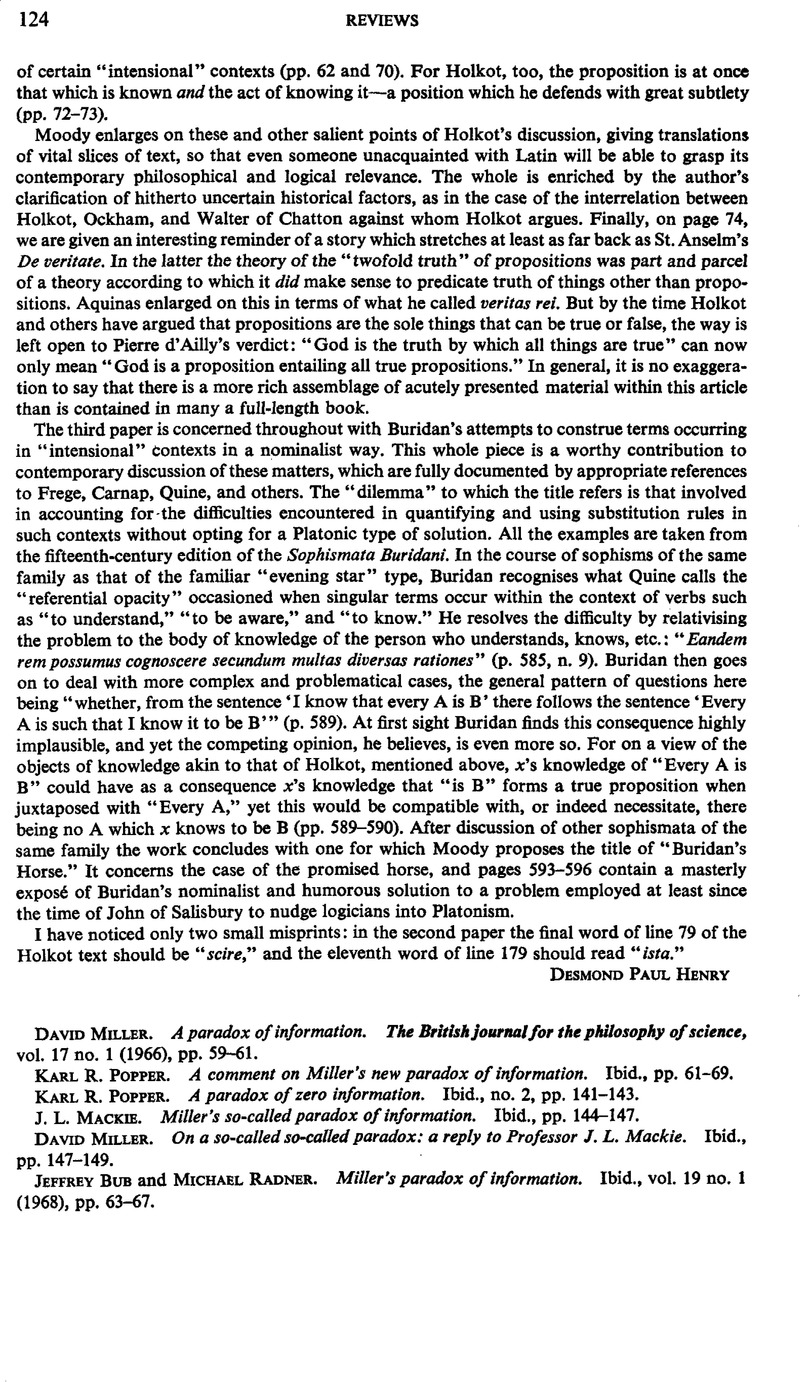Crossref Citations
This article has been cited by the following publications. This list is generated based on data provided by Crossref.
Miller, David
1979.
What's in a numeral?.
Philosophical Studies,
Vol. 35,
Issue. 4,
p.
323.
Lewis, David
1980.
IFS.
p.
267.
Jeffrey, Richard
1981.
Tome 1 Philosophie du langage, Logique philosophique / Volume 1 Philosophy of language, Philosophical logic.
p.
367.
Niiniluoto, Ilkka
1982.
La philosophie contemporaine / Contemporary philosophy.
p.
157.
Skyrms, Brian
1997.
Probability, Dynamics and Causality.
p.
145.
VRANAS, PETER B. M.
2004.
Have Your Cake and Eat It Too: The Old Principal Principle Reconciled with the New*.
Philosophy and Phenomenological Research,
Vol. 69,
Issue. 2,
p.
368.
Jonathan, Weisberg
2011.
Inductive Logic.
Vol. 10,
Issue. ,
p.
477.





